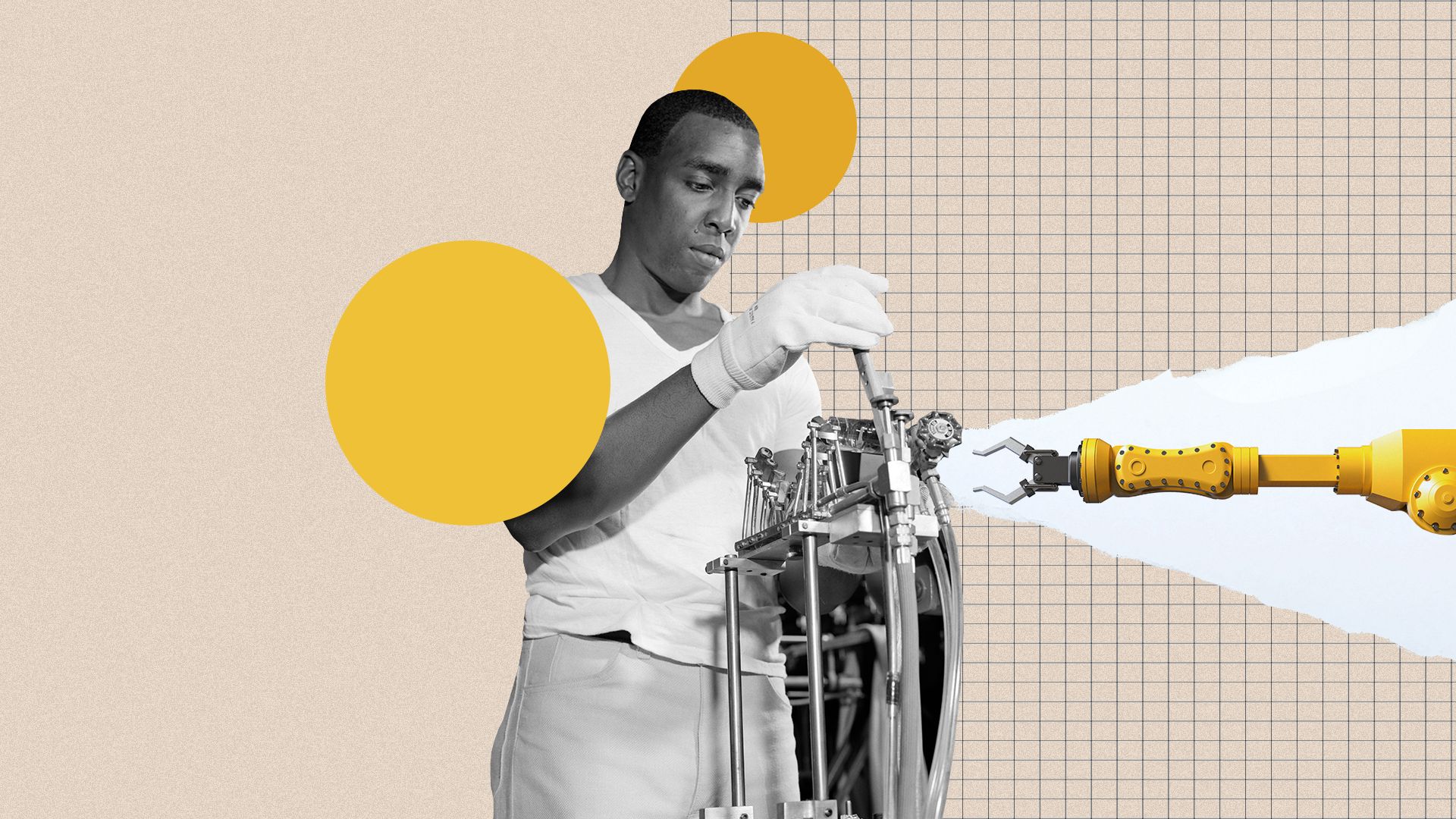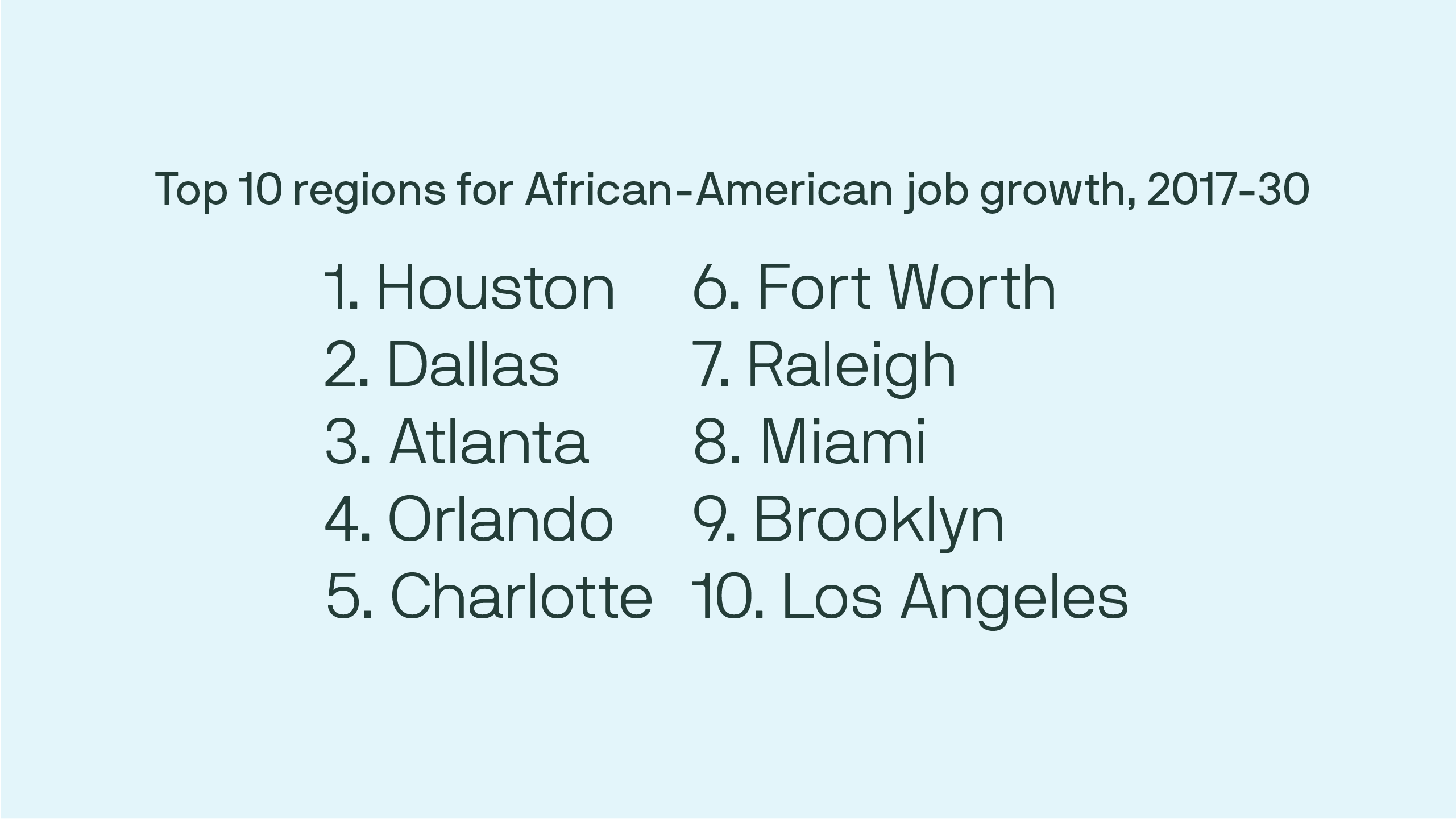Automation to hit African Americans disproportionately
Add Axios as your preferred source to
see more of our stories on Google.

Image: H. Armstrong Roberts/ClassicStock/Getty; Illustration: Aïda Amer/Axios
The employment outlook for African Americans will "worsen dramatically" as automation upends the workforce, according to a new report from McKinsey & Co.
Why it matters: By 2030, African American workers stand to lose hundreds of thousands of jobs as a result of increased automation, widening the racial wealth gap and weighing down overall U.S. growth.
- The problem will be particularly acute for men, younger workers between 18 and 35, and those without a college degree, according to the report, "The future of work in black America."
The cost: Researchers have projected that closing the racial wealth gap could net the U.S. economy between $1.1 trillion and $1.5 trillion by 2028.
- The additional loss of jobs and buying power from African Americans could mean further opportunity cost losses.
Details: African American workers are at risk of exceptional job losses for three key reasons.
- They are over-represented in "support roles that are most likely to be affected by automation, such as truck drivers, food service workers, and office clerks."
- They have an unemployment rate that is double that of white workers, "even when controlling for education, duration of unemployment, and the cause of unemployment."
- They are underrepresented in five of the six parts of the country projected to grow the fastest, and over-represented in parts of the country that are on pace to see the slowest growth.
Between the lines: Researchers found "more than 200 counties, largely concentrated in the Southeast and Midwest, where a decline in African American net job growth could occur alongside an increase in job growth for white employees."
- African American women are expected to fare better than men, in part because of their strength in fields projected to grow — home health aides, nursing assistants and personal-care aides.

The bottom line, from Kaveh Waddell, co-author of Axios Future: Preparations for the future of work, like job training programs and potential new safety nets, will need to be tailored in part to the groups who will bear the brunt of the changes.
- Otherwise, this inflection point could widen longstanding pay gaps rather than shrink them.
Go deeper: Read the report
